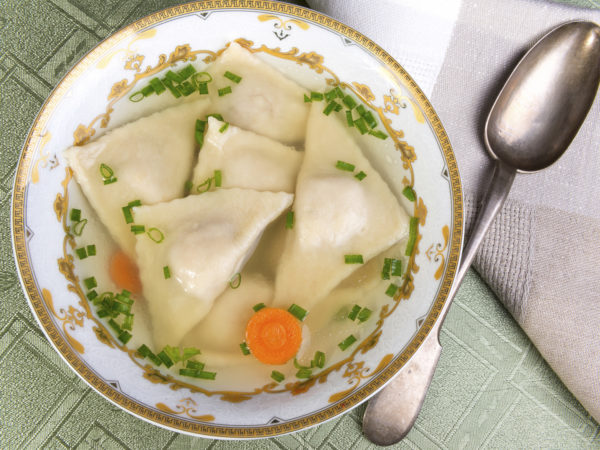Are Kosher Foods Better For You?
I understand there’s a trend toward eating kosher foods, even if you’re not Jewish, because they’re healthier than non-kosher foods. True?
Andrew Weil, M.D. | February 27, 2012

The word “kosher” has to do with religious laws that specify what observant Jews can and cannot eat and how those foods must be prepared and used. Kosher is not a “style” of eating or cooking. With specific exceptions (pork, shellfish, rodents, birds of prey), almost any food can be kosher if it is prepared in accordance with the religious rules. And, contrary to what some believe, the word “kosher” does not signify that food has been blessed by a rabbi.
I’ve read that in recent years there’s been a boom in sales of kosher foods and that nearly two thirds of all customers believe they’re getting a higher quality product than is otherwise available in supermarkets. About half of all customers say that they choose kosher food because they view it as healthier than other foods and about a third do so because they think kosher food is safer. Surprisingly, the survey that led to these findings also revealed that only 15 percent of customers buy kosher foods in order to conform to religious dietary rules.
To some degree, kosher foods may be safer and therefore healthier than other products. This is because the strict rules under which they are produced and certified require closer inspection and monitoring. For example, kosher laws forbid observant Jews from consuming insects, which means that prior to packaging, vegetables, fruits and grains must first be carefully inspected to make sure that they contain no bugs.
If you’re trying to avoid certain foods – dairy products, for instance – you don’t have to worry about accidentally ingesting dairy if you stick to kosher foods. The dietary laws forbid mixing meat and dairy foods and require that kosher dairy products and meats be processed separately. The equipment used for dairy foods is never used for meats. Fish must be prepared on equipment that has never been in contact with non-kosher foods.
If you’re allergic to shellfish, you have no worries if you stick to kosher products since kosher law prohibits Jews from eating any type of shellfish. Vegans can be confident that kosher products will contain no dairy or meat (look for those labeled “pareve” or “parve”) and have not come into contact with equipment used for dairy foods or meats. If you’re allergic to dairy foods and have a hankering for salami or hot dogs, you can be sure that these items are not produced with a preservative made with milk sugar as is the case with many non-kosher cured meats.
All this may add up to foods that are somewhat safer than other supermarket choices, but it doesn’t necessarily mean that you’re buying something that is better for your general health than equivalent non-kosher food. Kosher salami and hot dogs are no better for you than non-kosher versions.
Andrew Weil, M.D.










